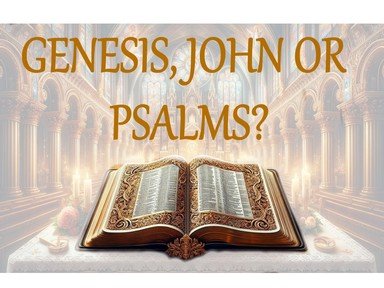Quiz Answer Key and Fun Facts
1. Now the earth was formless and empty, darkness was over the surface of the deep, and the Spirit of God was hovering over the waters.
2. Give thanks to the Lord, for he is good; his love endures forever.
3. In the beginning was the Word, and the Word was with God, and the Word was God
4. May these words of my mouth and this meditation of my heart be pleasing in your sight,
5. What have you done? Listen! Your brother's blood cries out to me from the ground.
6. For God so loved the world that he gave his one and only Son, that whoever believes in him shall not perish but have eternal life.
7. I establish my covenant with you: Never again will all life be destroyed by the waters of a flood; never again will there be a flood to destroy the earth.
8. He makes me lie down in green pastures, he leads me beside quiet waters, he refreshes my soul.
9. Now Israel loved Joseph more than any of his other sons, because he had been born to him in his old age; and he made an ornate robe for him.
10. God is our refuge and strength, an ever-present help in trouble.
11. I am the way and the truth and the life. No one comes to the Father except through me.
12. Because you have seen me, you have believed; blessed are those who have not seen and yet have believed.
Source: Author
Midget40
This quiz was reviewed by FunTrivia editor
looney_tunes before going online.
Any errors found in FunTrivia content are routinely corrected through our feedback system.
